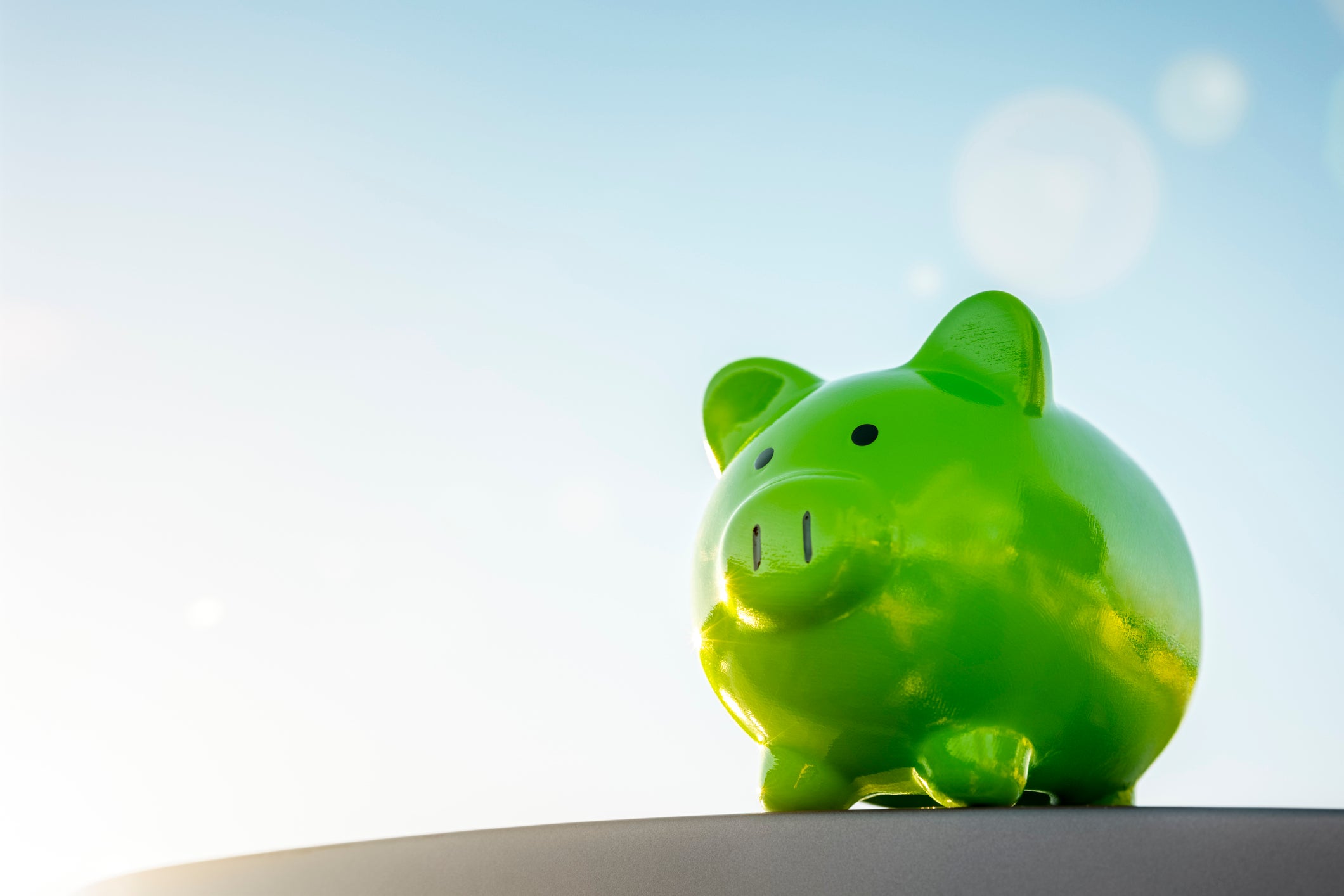Amid an ongoing climate crisis while world leaders and businesses alike appear to roll back environmental policies and sustainability practices, the good news is that it’s possible for your own money and investments to support businesses paving the way to a more sustainable future.
More people than ever are looking to invest with a conscience.
A recent “Sustainable Signals” report by Morgan Stanley found that 77 per cent of individual investors globally want to invest for positive social or environmental impacts alongside market-rate financial returns. However, confusion over how to do this prevents many from taking action.
Sustainable bank Triodos revealed 81 per cent of Brits are fearful of the future. Yet almost half (49 per cent) of all adults – and two-thirds (67 per cent) of 18-34 year olds – say they want their money to do good, but don’t know where to start.
If that’s you, this is your starting point, as we show how you can align your finances to help build a greener – and fairer – world.
What is sustainable investing?
First, consider what sustainable investing means to you.
You might want your investments to avoid destructive industries such as fossil fuels, tobacco and weapons.
Or, you might prefer to invest in a way that pushes companies to do better – known as stakeholder engagement. For example, your fund may be invested in Shell or BP, but your vote as a shareholder will be used to encourage them to finance more green energy.
Most sustainable funds tilt towards companies scoring well on environmental, social and governance (ESG) issues. Morningstar has rated thousands of funds on how well they do this. Others go further by solely investing in companies that are making a positive and measurable difference to the planet and society, known as impact investing.
Think about causes which mean most to you: it could be cutting carbon emissions, protecting biodiversity or reducing poverty. Then, you can decide where to allocate your investments.

Stocks and Shares ISAs
A Stocks and Shares Isa allows you to invest up to £20,000 per year, without having to pay tax on any profits. While you could handpick individual companies, an easier (and less risky) approach is to choose from sustainable funds.
Get a free fractional share worth up to £100.
Capital at risk.
Terms and conditions apply.
Go to website
ADVERTISEMENT
Get a free fractional share worth up to £100.
Capital at risk.
Terms and conditions apply.
Go to website
ADVERTISEMENT
Investment platforms EQ Investors, Triodos and Liontrust all offer highly regarded impact funds. The first two hold a Good Egg mark from ethical money site Good With Money, which means they can prove they are making a tangible difference.
It’s important to beware of greenwashing, where investment providers make inflated claims about the sustainability credentials of their products.
The Financial Conduct Authority (FCA) has started to crack down on this issue though with a new labelling system to reflect different investment approaches. With or without these labels it’s important to do some research yourself. Check fund factsheets as these will show you the companies they invest in, their objectives and how they’re run.
Some platforms have tools to help narrow down your options. For example, interactive investor has a best-in-class list of sustainable funds, ETFs and investment trusts called the “ACE 40”.
Innovative Finance ISAs
An Innovative Finance Isa allows you to directly invest in individual pioneering companies and projects with a clear social or environmental mission. Any investments held in one will count towards your £20,000 tax-free limit.
As examples, impact investing platform Ethex is currently offering bonds in ethical finance company Salad Money. Energise Africa offers investments in organisations bringing clean and affordable energy to sub-Saharan Africa.
These investments are considered to be high risk (with the potential reward of higher returns), so it’s important to include them only as part of a diversified portfolio.
Pensions
Greening your pension is 21 times more effective at cutting your carbon footprint than going veggie, giving up flying and switching energy providers combined, according to campaign group Make My Money Matter. Its research shows that UK pension schemes invest £88bn in fossil fuel firms, equating to £3,000 per pension holder. And for every £10 you put in the average pension, £2 is linked to deforestation.
If you’d rather your retirement fund be used to invest in the planet’s future as well as your own, consider moving it to a more sustainable provider.
The PensionBee Climate Plan is a trailblazer in this area. It avoids companies with any ties to fossil fuels and also actively invests in those that are driving the transition to a low carbon economy. The NEST ethical fund and Penfold Sustainable Plan are also great options.

Does sustainable investing mean sacrificing returns?
Sustainable investing isn’t pure altruism, it can also be a logical financial strategy.
The idea is that companies making efforts to preserve the environment, treat staff well and have strong governance in place will do better financially in the long run than those focused on short-term profits alone.
The latest Good Investment Review shows that actively-managed sustainable funds have performed comparatively well to their traditional peers in the last five years, despite difficult market conditions. Companies that do harm may face a future of increasing consumer criticism, regulation and financial penalties.
Other ways to make your money green
In 2023 alone, the UK’s ‘Big Five’ banks – HSBC, Barclays, Santander, NatWest and Lloyds – provided more than $55bn (£41bn) in finance to fossil fuel companies, according to a Banking on Climate Chaos report.
Ethical banks and building societies avoid investing in environmentally harmful or otherwise unethical industries, treat staff and customers fairly and pay their share of tax.
The gold standard here is Triodos Bank as it will only invest your money to make a positive impact on the planet and society. Building societies including Nationwide, Cumberland and Coventry (which recently bought the Co-operative Bank) are also seen as a good choice as they are owned by their members, not shareholders who receive dividends from profits.
There are plenty of ways to use your money sustainably – you just need to find the one which suits your ideals and aims.
When investing, your capital is at risk and you may get back less than invested. Past performance doesn’t guarantee future results.











More Stories
Third of 18 to 21-year-olds ‘worry about money every day’
Trump Shifted on Tariffs After Bond Holders Got Jittery. He Held Millions Himself.
Christmas saving: Why you should already be putting money away for the festive season, and how